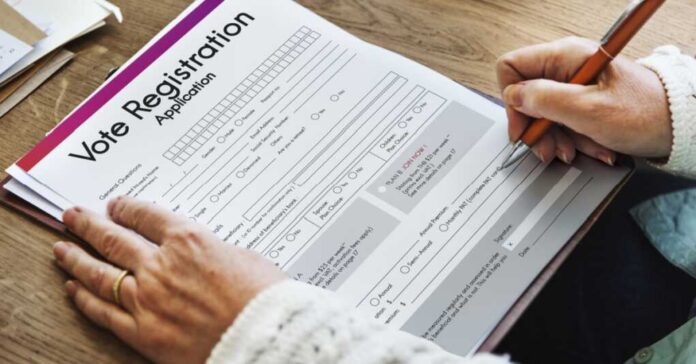
It was a mixed bag of results in Arizona’s closely watched legal dispute over voter registration laws. On the one hand, U.S. District Court Judge Susan Bolton confirmed that Arizona has a valid interest in ensuring that only citizens participate in elections. She upheld provisions related to verifying citizenship, investigating voter legal status, and managing registrations in Arizona and rejected claims that the Republican-controlled Legislature acted with discriminatory intent when passing these laws.
On the other hand, she blocked some provisions with the state’s mail-in voter registration document requirements.
In the Arizona voting rights lawsuit, two advocacy groups from Phoenix and Washington, D.C., sued Arizona Secretary of State Adrian Fontes, Attorney General Kris Mayes, and all 15 Arizona county recorders in March 2022. The legal dispute revolved around HB2492, a law that mandates already-registered voters to furnish proof of citizenship to retain their registration for presidential elections or participate in any federal mail-in ballot.
The plaintiffs argued that this legislation might disenfranchise voters who lack access to the necessary documentation or the time to procure it. They contended that the law breaches the First and 14th Amendments, the Civil Rights Act, and the National Voter Registration Act.
In a 104-page decision, Bolton acknowledged, “Arizona’s interests in preventing non-citizens from voting and promoting public confidence in Arizona’s elections outweighs the limited burden voters might encounter when required to prevent documentary proof of citizenship.”
But there’s a catch.
According to the decision, county recorders can’t refuse individuals from registering just because they haven’t shared where they were born. She believes this detail isn’t relevant when deciding if someone is a citizen. Bolton also expressed worry about county recorders being required to check federal databases every month, a process whose aim is to find registered voters who might not be citizens.
The issue, Bolton rules, is that naturalized citizens could face unfair treatment compared to native-born citizens. County recorders might subjectively decide their citizenship status, while native-born citizens will never face this scrutiny. Judge Bolton argues that this unequal treatment goes against the idea of treating everyone equally.
It’s not the first time Bolton has been forced to rule on Arizona’s 2022 voting laws. Previously, she stopped Arizona from enforcing a part of the law that would have required proof of citizenship for those voting in presidential elections. She clarified that Arizonans using the federal voter registration form, which doesn’t require such evidence, can still cast ballots in presidential races. Additionally, she ruled that the state cannot prevent mail-in voting for those using the federal form.
The Federal Election Assistance Commission form allows residents to vote in presidential and congressional races without proving citizenship. Instead, applicants are only required to sign a sworn statement, declaring under penalty of perjury that they are indeed citizens.
The provisions address the issue of citizens who otherwise can’t provide the state’s required “documentary proof of citizenship.”
For Trump, who lost the state to Biden in 2020 by less than 10,500 votes, Bolton’s decision won’t help in 2024. It’s estimated that 21,000 Arizonans likely sidestepped eligibility requirements using the Federal Election Assistance Commission form.
The decision was a direct blow to Democrats, who had hoped Bolton would consider tighter voter registration laws “discriminatory.” Bolton allowed the challengers to present their case, even permitting them to question Senate President Warren Peterson and House Speaker Ben Toma to prove their discrimination case. But while the defendants could not point to a specific incidence of voter fraud by illegal immigrants, they did prove that tightening the laws did not constitute a discriminatory decision.
She even found fault with the Hail Mary the plaintiffs introduced, a series of “racially motivated” remarks made by Senate Majority Leader Sonny Borrelli. In her decision, Bolton found that even if Borrelli made discriminatory comments, the plaintiffs could not attribute his intentions to other lawmakers or the entire Arizona Legislature.
Bolton also dismissed the fact that lawmakers didn’t think about how the laws would affect people of color or naturalized citizens, saying it wasn’t enough to prove they were being discriminatory.
In fact, “nothing in the legislative hearings evince a motive to discriminate against voters based on race or national origin,” writes Bolton.
Going one step further, Bolton also observed that Arizona has had a requirement to show proof of citizenship to register since 2005. She explained that the 2022 laws added to this requirement but didn’t change it fundamentally.
It’s another blow to Democrats, and unless they can create another national emergency and lock down the country again, it seems they are losing their grip on their ability to influence elections, one court decision at a time.







